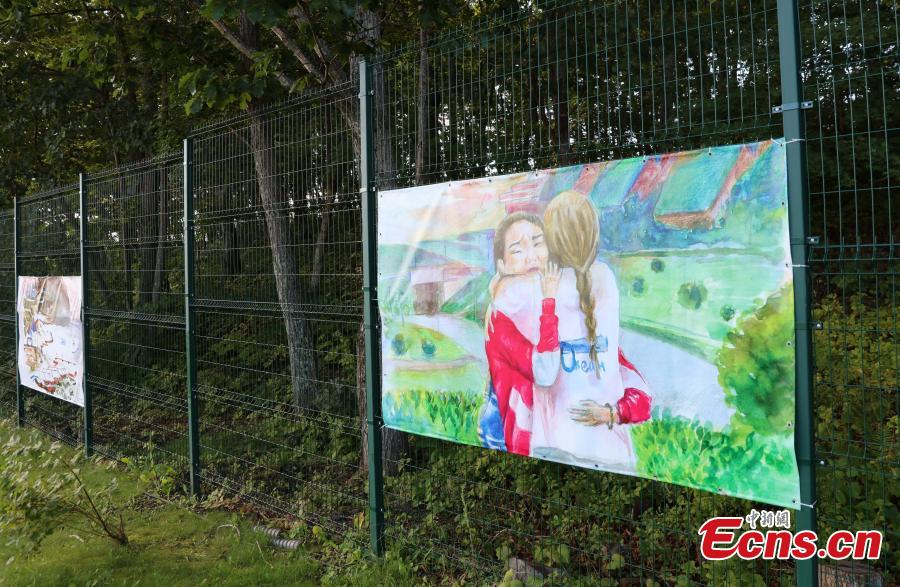All-Russian Children's Center 'Ocean' witnesses China-Russia friendship
Founded in 1983, All-Russian Children's Center "Ocean," one of the most famous children's camps in Russia, has borne witness to the profound friendship between China and Russia.
In the suburbs of the Far Eastern port city of Vladivostok is located Russia's largest state education organization for children and teenagers, where ripples of children's laughter can be heard from time to time.

Founded in 1983, All-Russian Children's Center "Ocean," one of the most famous children's camps in Russia, employs 1,200 people and can receive 2,000 children for recuperation and competence education.
The facility, on whose walls photos of children from China's earthquake-hit Sichuan Province are still hung, has borne witness to the profound friendship between China and Russia.
After a deadly earthquake hit China's southwest Wenchuan County, where nearly 70,000 people died and about 18,000 others went missing in 2008, then Russian President Dmitry Medvedev invited 1,500 Chinese students to recuperate in Russia, 890 of whom had been living in the "Ocean" center. Another 259 students from earthquake-stricken Lushan County came to the center in 2013.
A teacher, who gave her name as Kourova, said they taught the Chinese students simple Russian and culture, hoping that the young survivors would go back to live a happy and untroubled childhood.
The facility overlooking the sea is equipped with the best dormitories, teaching buildings, a stadium and a science museum. The students woke up to the first rays of the sun and the to sound of the waves, which had a soothing effect.
Many teachers even invited the Chinese students home, said an employee named Madezhaer. The center also arranged therapies to help the children adapt to the life in Russia.
Kourova, who has been working in the center since it was founded, referred to herself as a witness to the China-Russia friendship. She said she was impressed by the hospitality of the Chinese people when she and other teachers and students of the center were invited to visit Sichuan.
Andrei Bazirevski, the head of the center, said Chinese and Russian children put on a show together at the end of the recuperation, featuring dancing and singing, and that the center published their stories on its magazine and collected photos of the Chinese students.
The cooperation with China is long-term, said Bazirevski. The center has signed cooperation deals with a number of Chinese educational institutions and receives Chinese students of all ages every year with ever improved curricula and recreational programs.
He expressed his hope that the students would become the inheritor of the friendship between China and Russia, and help deepen friendship and relations between the two nations.

